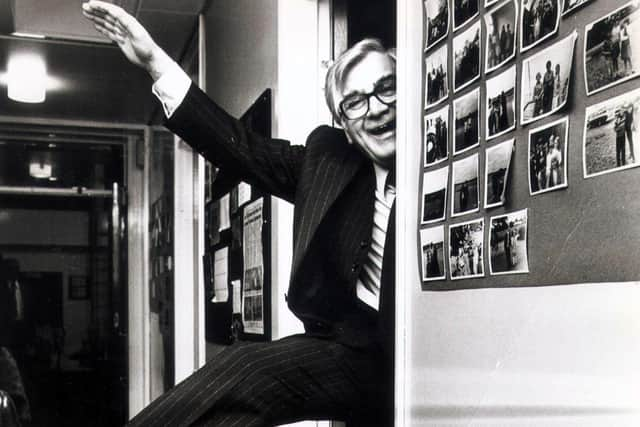Why shouldn’t over-70s enjoy the Brits? After all, they invented rock and roll


The same trick worked in reverse this week if you scanned the attendees at the music industry’s Brit Awards. Sir Rod Stewart apart, their names were alphabetti spaghetti to me.
Yet a survey buried in the papers at around the same time made nonsense of the supposed age gap that divides us. One in five over-70s, it revealed, continue to seek out new music and to attend live performances.
Advertisement
Hide AdAdvertisement
Hide AdThis seemed to have surprised the pollsters, but why should it? Today’s 70-year-olds invented the rock and roll culture that we still recognise. They were the first to go to music festivals, the first to take recreational drugs and spend six shillings and eightpence a week on a 45rpm single – and the first to go to the Brit Awards.


They weren’t called the Brits then but the New Musical Express Awards, at the old Empire Pool in Wembley. The Beatles and the Rolling Stones played there live. They knew how to put on a show in those days.
It wasn’t all they knew. Satellites, mass communications, video and even computers were among the other inventions of today’s retirees – a detail that is conveniently overlooked by those who have ridden in on their coattails, recycled their ideas, camouflaged them in jargon and passed them off as their own.
Advertisement
Hide AdAdvertisement
Hide AdThis is irksome for those who see themselves being supplanted. Getting older doesn’t mean losing sight of the person you were 40 or 50 years ago; it just means growing wiser.
Some people go to extreme lengths to prove this. Jeremy Corbyn tried immediately after the Brits to show that he was still down with the kids, by tweeting seemingly random lyrics by a south London rapper who goes by the name of Dave. As a result, we know more about his stance on that than on Brexit. Today’s ephemera is tomorrow’s heritage, however; a generation from now, Dave will probably be Sir Dave.
Outside the music arena, there was more evidence this week of researchers digging up what we already knew and offering it up as a new phenomenon. Almost half the pupils preparing for their GCSEs in Leeds, said a report, suffered from anxiety and stress, and fewer than ever were “happy”.
Advertisement
Hide AdAdvertisement
Hide AdWhile it is helpful that this is being recognised, it has changed hardly at all since I sat my O-Levels. The difference then was that no-one ever asked us. We were expected to shut up and get on with life, as our parents had done in circumstances far worse.
This climate in which speaking openly of one’s anxieties is not only permissible but expected, is one of the most fundamental changes of 21st century society, it seems to me.
It is especially true of gender identification – a topic once discussed in clandestine cliques or encoded as double entendre on Round The Horne, and the cause of lifetimes of private unhappiness. Now, it is proclaimed as publicly as supporting a football team.
But while baring one’s soul is a positive development, it makes me uncomfortable. Growing wiser does not, in my case, undo the ties of a repressive suburban upbringing. When researchers come knocking on my door with impertinent questions about wellbeing, my pen goes straight to the box marked, ‘rather not say’.
Advertisement
Hide AdAdvertisement
Hide AdIt is a trait my son has not picked up, I’m pleased to say. His emotions are an open book. If he has concerns, he rightly expects them to be taken seriously.
Yet inclusion has its downside. Expectation among his peer group breeds entitlement, and fuels that sense of superiority they have over their elders. Respect for the young was not supposed to come at the expense of deference for the more mature.
It’s an old argument, one our parents used against us. Britain has never much respected its elders but neither has it been quite so youth orientated as it is now – not even in the days of the New Musical Express Awards.
My own learning curve has increased steeply as a result of the Brits, I am happy to report. I now know that K-pop, which it was said would be the biggest trend of the coming decade, is a genre of popular music from South Korea and not, as I had assumed, a breakfast cereal. And, by the way, I also know who Harry Worth was.